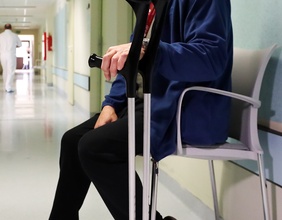10.09.2015
News in English
The next wave of refugees arrives in Austria / NATO expresses concern over Russian presence in Syria / Tens of thousands evacuated due to floods in Japan / Scientists call for approval of controversial gene modification procedure / The weather
8. April 2017, 21:58
10.09.2015
The next wave of refugees arrives in Austria
Due to a lack of trains available, Austria is increasing the number of buses it has dispatched to the border with Hungary to cope with a large new wave of refugees. Officials now say more than 3,700 refugees arrived in Nickelsdorf in Burgenland overnight and this morning after crossing over the border on foot. The numbers are expected to touch levels similar to the large influx over the weekend. In addition to the buses, special trains are still taking the migrants to Vienna's Westbahnhof from where the vast majority plan to travel on to Germany.
NATO expresses concern over Russian presence in Syria
The head of NATO, Jens Stoltenberg says he's concerned about reports that Russia is increasing its military presence in Syria. Along with Iran, Russia has been a keen supporter of the Syrian president Bashar Assad. Stoltenberg says more diplomacy is needed not more weapons: "That will not contribute to solving the conflict. I think it's important to now support all efforts to find a political solution to the conflict in Syria. We support very much the efforts of the UN to try to find a political solution to the conflict in Syria."
Tens of thousands evacuated due to floods in Japan
Widespread flooding and landslides in north-east Japan have forced more than 90,000 people to abandon their homes. The city of Joso, north of the capital, Tokyo, was hit by a wall of water after the Kinu.gawa River burst its banks. Helicopter rescue teams have been lifting people from rooftops. Despite the dramatic advance of the flood, only one person has been reported missing in the region and around a dozen injuries have been reported.
Scientists call for approval of controversial gene modification procedure
An international group of scientists is calling for intensified research into the genetic modification of human embryos, saying that while controversial it is essential to gain basic understanding of the biology of early embryos and should be permitted. The statement was issued by members of the Hinxton Group, a global network of stem cell researchers, bioethicists. The group said it did not currently favor allowing genetically modified human babies to be born at the moment, but said it may be "morally acceptable" in the future if, for instance, it can correct genetic disorders like cystic fibrosis. Professor Andrew Sherricks supports the move: "I would rate this technology as one of the biggest recent revolutions in biology. In my career of 25 years as a molecular biologist, I would say that it ranks among the top three or four different procedures which have all led to nobel prizes so far."
The weather
Partly sunny in all of Austria. Dry in the east. Scattered rain and thundershowers are forecast for the western half of the country. Highs are ranging from 13 to 22 degrees.





